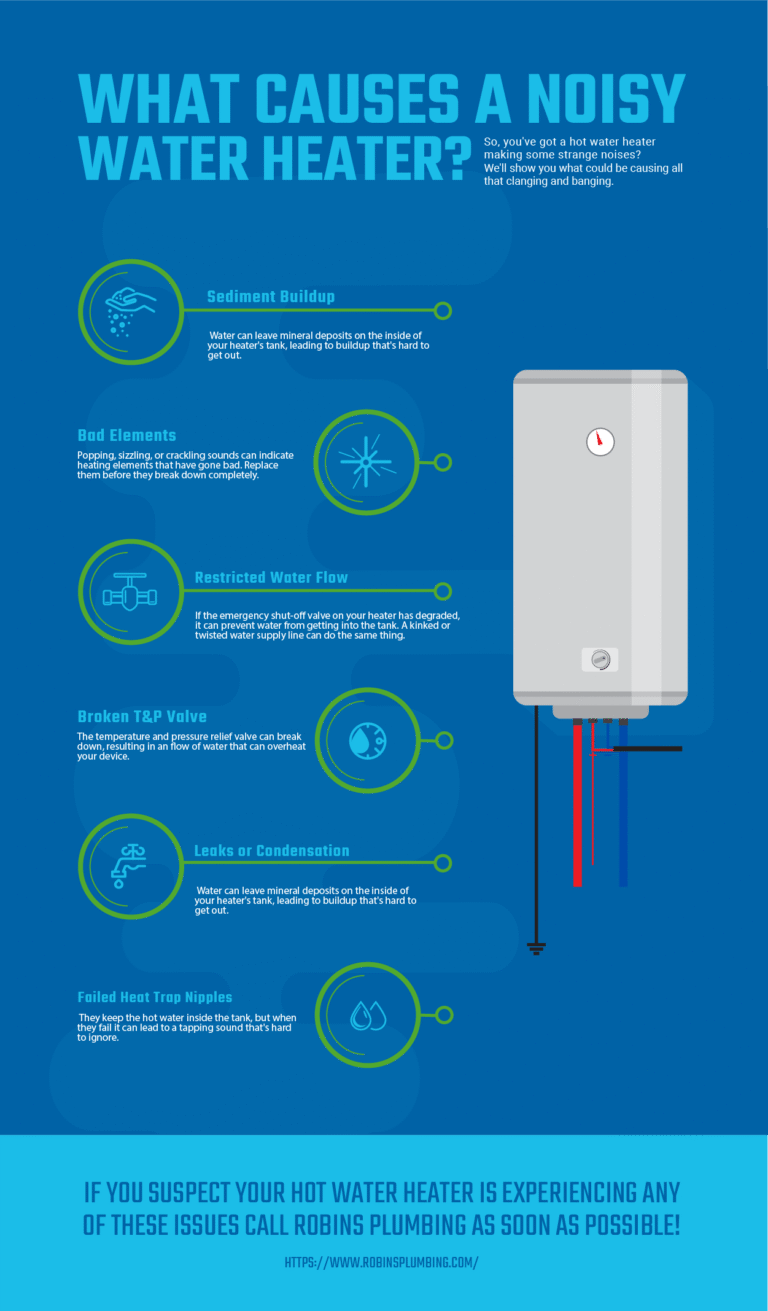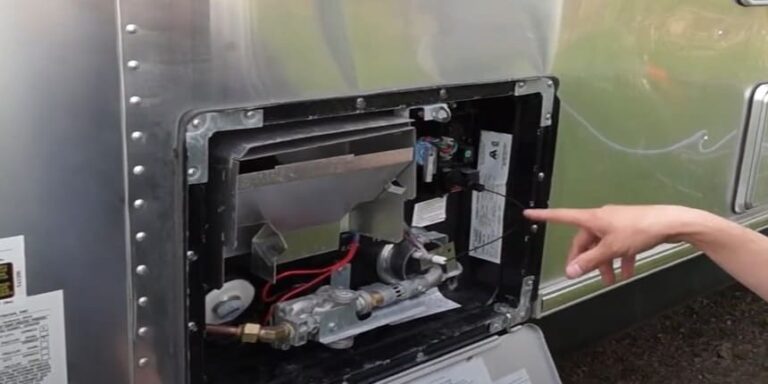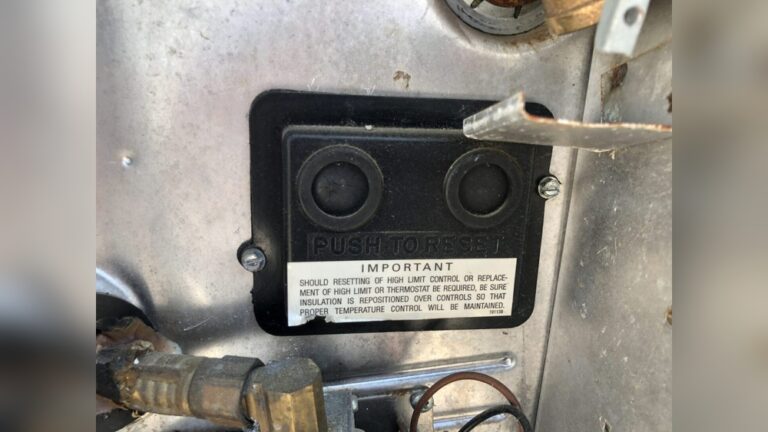Are you tired of stepping into a lukewarm shower after a long day on the road? If your RV water heater isn’t getting hot enough, you’re not alone.
Many RV enthusiasts face this frustrating issue, and it’s more than just an inconvenience—it’s a barrier to comfort and relaxation. Imagine the joy of having a cozy, steaming shower waiting for you at the end of your adventures, no matter where the road takes you.
This article will guide you through the common causes of this problem and offer simple, effective solutions to ensure your RV’s water heater performs at its best. Get ready to reclaim your comfort and enjoy every moment of your travels with the perfect hot shower. Dive in to discover how you can fix this issue and enhance your RV experience.
Common Causes Of Lukewarm Rv Water
Lukewarm water in your RV can be frustrating. Common causes include faulty thermostats and sediment build-up. Insufficient propane supply may also lead to less hot water. Regular maintenance can help maintain optimal water temperature.
If you’re finding your RV water heater isn’t getting hot enough, you’re not alone. Many RV owners face this lukewarm dilemma. Understanding the common causes can save you time and frustration. Often, a few simple adjustments can get your water heater back to its optimal performance. Let’s dive into the frequent culprits of lukewarm RV water.
Faulty Thermostat
A thermostat regulates the water temperature. If it’s malfunctioning, your water might not reach the desired heat. Regularly check and replace the thermostat if necessary. Adjusting it to the right setting can make a significant difference.
Sediment Buildup
Sediment can accumulate over time, especially if you frequently use hard water. This buildup acts as a barrier, preventing your heater from warming the water efficiently. Flushing the tank can help. Make this a routine part of your maintenance to ensure your heater runs smoothly.
Malfunctioning Heating Element
The heating element is crucial for warming your water. If it’s worn out or damaged, it won’t generate enough heat. Test it periodically. Replacing a faulty element can restore your heater’s performance.
Insufficient Power Supply
Your water heater needs a steady power supply to function properly. If the power source is weak or inconsistent, it can’t heat the water effectively. Check the connections and power source. Ensure your RV’s electrical system is up to the task. Have you ever found yourself in a chilly shower, wondering why your RV water heater is underperforming? Addressing these common issues can prevent those unwelcome surprises. Which of these causes resonates most with your experience?
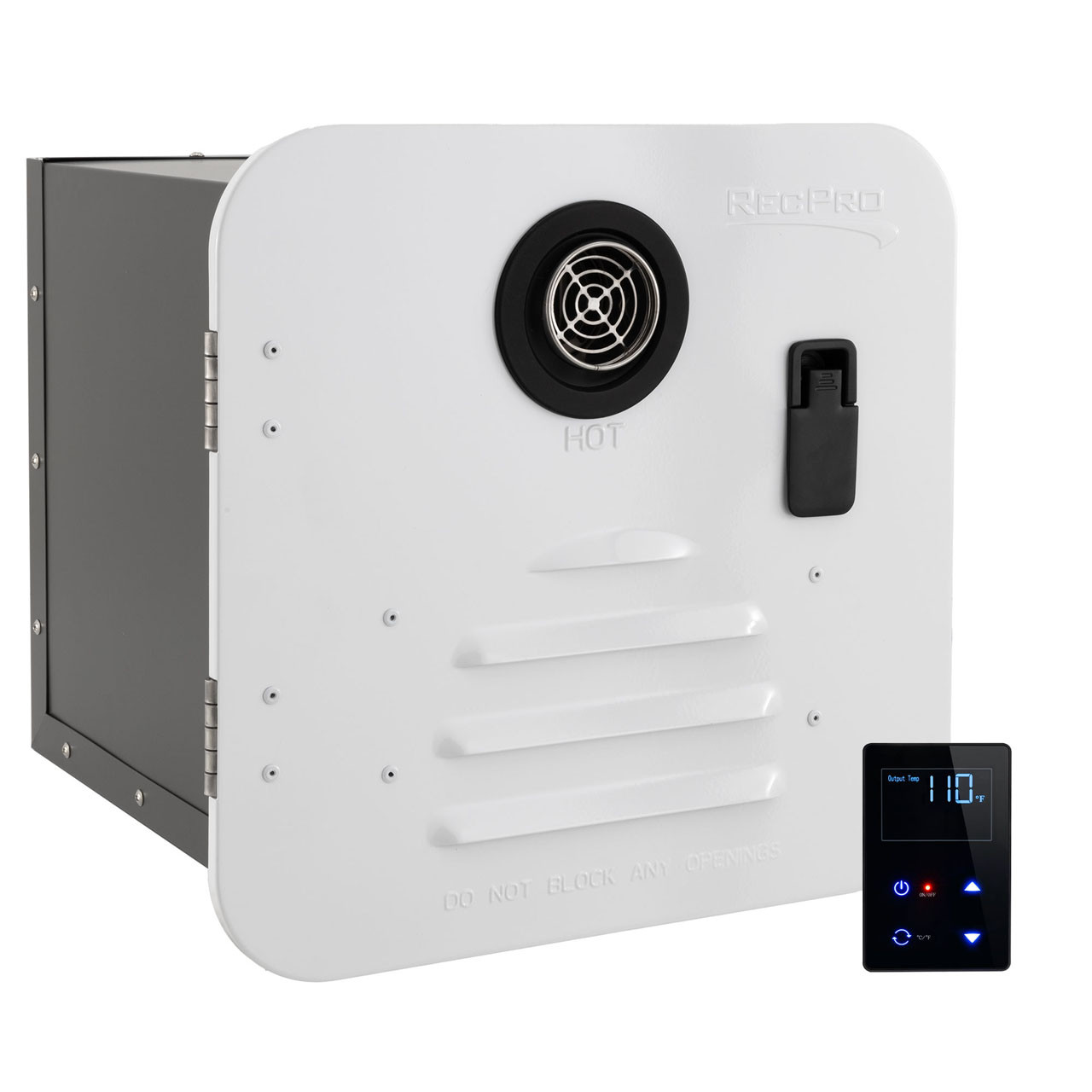
Credit: recpro.com
Diagnosing The Problem
Having trouble with your RV water heater? Water not getting hot enough can be frustrating. Diagnosing the issue is the first step to resolving it. Let’s explore the main areas to check.
Checking The Thermostat
The thermostat regulates water temperature. It might need adjusting. Check if it’s set correctly. Sometimes, it can become faulty. Replacing it might be necessary.
Inspecting For Sediment
Sediment build-up can affect heating efficiency. It usually settles at the tank’s bottom. Draining the tank might help. Flush it to remove sediment. This can improve heater performance.
Testing The Heating Element
The heating element heats the water. If damaged, it won’t work properly. Use a multimeter to test it. A faulty element requires replacement. This can restore heat.
Evaluating Power Supply
The power supply is crucial for heating. Check connections for any loose wires. Ensure the power is reaching the heater. Inspect breakers or fuses for issues. Fixing power supply problems can solve heating issues.
Diy Fixes And Maintenance
When your RV water heater isn’t getting hot enough, it can really put a damper on your travel plans. But before you throw in the towel and call a professional, there are several DIY fixes and maintenance tips that might just save the day. These fixes are not only straightforward but can also be quite empowering. Imagine the satisfaction of solving the problem yourself, with minimal tools and effort. Let’s dive into some practical steps you can take to ensure your water heater is back in top shape.
Adjusting Or Replacing The Thermostat
Think of the thermostat as the brain of your water heater. If it’s not set correctly, your water won’t reach the desired temperature. Check the thermostat setting first. It might be set too low. Adjust it to a higher temperature, but be cautious not to set it too high, as it might lead to scalding water.
If adjusting doesn’t work, consider replacing the thermostat. It’s a relatively simple task. Ensure you purchase one that matches your heater model. Follow the manual’s instructions or watch a quick tutorial online. This small change can make a big difference.
Flushing Out Sediment
Over time, sediment can build up in your water heater tank, affecting its efficiency. You might notice a rumbling noise or fluctuating temperatures. Flushing the tank is a straightforward process. Turn off the heater, connect a hose to the drain valve, and let the water flow out until it runs clear.
This simple action can dramatically improve your water heater’s performance. It’s something you should consider doing annually. Have you ever tackled sediment build-up in your home appliances? The principle is the same here; regular maintenance keeps things running smoothly.
Replacing The Heating Element
If your water heater is still not heating up after adjusting the thermostat, the heating element may be faulty. Replacing it requires some basic tools and a bit of patience. Turn off power to the heater and drain the tank before starting.
Once drained, remove the old element and install the new one. Make sure it’s compatible with your heater model. This fix is like swapping a worn-out part in your car—it’s necessary for optimal performance. Ever had that moment when a simple replacement solves a nagging issue? The feeling is priceless.
Ensuring Adequate Power
Sometimes, the problem is as simple as insufficient power supply. Check the circuit breaker; it might be tripped. Reset it and see if that resolves the issue. Also, inspect the power cable for any damage or loose connections.
It’s surprising how often the solution is right under your nose, isn’t it? Ensuring your RV’s power supply is consistent can prevent many headaches. Are you confident your RV is getting the power it needs? This quick check could be all you need to solve the mystery.
These DIY fixes can save you time and money. Regular maintenance ensures your RV water heater performs at its best. So, next time you hit the road, you can focus on the journey, not the temperature of your shower.
When To Seek Professional Help
Sometimes, RV water heaters refuse to heat properly. Simple fixes might not work. Knowing when to call a professional is crucial. It can save time and prevent further issues. Let’s explore scenarios needing expert intervention.
Persistent Issues
Water heaters with recurring problems need expert help. If you’ve tried basic troubleshooting without success, it’s time to call in a professional. Constant lukewarm water is a sign of deeper issues.
A professional can identify hidden problems. They have the tools and expertise to diagnose and fix stubborn issues. Don’t let persistent problems ruin your trip.
Complex Repairs
Some repairs are too complex for DIY enthusiasts. If the issue involves disassembling parts, professional help is wise. Complex repairs may involve gas or plumbing systems.
Improper handling can lead to safety risks. Experts handle complex repairs efficiently. They ensure your water heater operates safely and effectively.
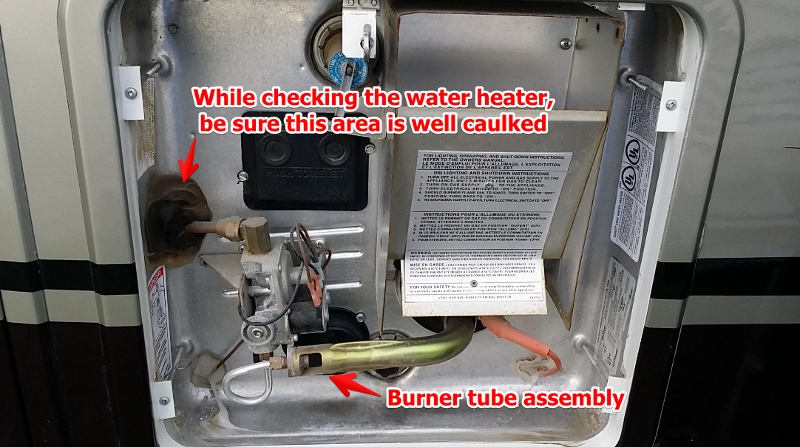
Credit: yourfulltimervliving.com
Electrical Concerns
Electrical problems need immediate professional attention. If your water heater trips breakers or has wiring issues, call an expert. Electricity and water make a dangerous combination.
Professionals have the skills to address electrical concerns safely. They ensure all components function correctly. Protect yourself and your RV by seeking professional help for electrical issues.
Preventive Measures
Ensuring your RV water heater functions optimally requires preventive care. Simple steps can prevent common heating issues. Regular maintenance is essential to avoid unexpected cold showers. Using water softening solutions can also help. Routine inspections can catch potential problems early. These measures ensure a consistently warm water supply during your travels.
Regular Maintenance
Regular maintenance keeps your RV water heater in top condition. Clean the tank to remove sediment build-up. This helps maintain efficient heating. Check the heater’s anode rod annually. Replace it if it’s more than half corroded. This prevents tank damage and extends its life. Keeping a maintenance schedule is crucial.
Using Water Softening Solutions
Hard water can affect the heater’s performance. Minerals accumulate and reduce heating efficiency. Using water softening solutions can prevent this build-up. These solutions dissolve minerals before they settle. This keeps the heater running smoothly. It also reduces the need for frequent cleaning. Soft water extends the heater’s lifespan.
Routine Inspections
Routine inspections help identify early signs of trouble. Check for leaks around the heater. Inspect connections and valves for wear or damage. Ensure the thermostat functions correctly. A faulty thermostat can lead to insufficient heating. Regular inspections save money on costly repairs. They keep your heater reliable and efficient.
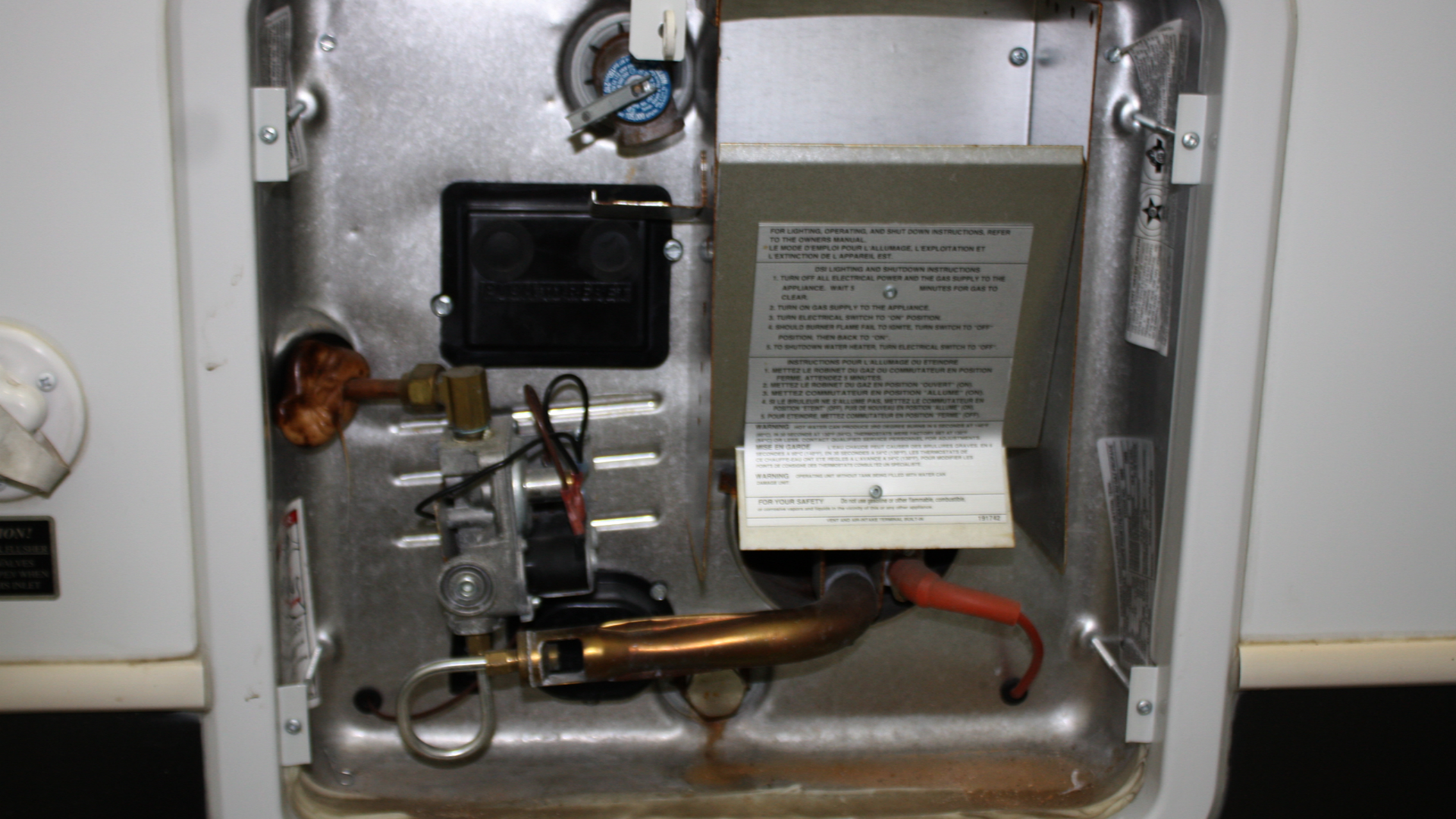
Credit: visapoint.travel
Frequently Asked Questions
Why Is My Rv Water Heater Not Getting Hot?
Your RV water heater might not be heating due to a faulty thermostat, sediment buildup, or a malfunctioning heating element.
Regular maintenance and inspections can prevent these issues. Check the thermostat settings and clean the heater tank to ensure it operates efficiently.
How Can I Fix My Rv Water Heater?
To fix your RV water heater, first, check the power supply. Ensure the thermostat and heating element are working. Clean the tank to remove sediment.
If problems persist, consider consulting a professional technician to diagnose and repair the issue.
What Maintenance Does An Rv Water Heater Need?
Regularly flush the tank to remove sediment buildup. Check the anode rod and replace it if necessary.
Inspect electrical connections and gas lines for any issues. Routine maintenance ensures your RV water heater functions efficiently and lasts longer.
Can Low Water Flow Affect Heater Performance?
Yes, low water flow can impact heater performance. It may lead to uneven heating and reduced efficiency.
Ensure water lines are clear of obstructions and the pump is functioning properly. Proper water flow is crucial for optimal heater operation.
Conclusion
Fixing an RV water heater can seem tough at first. But with patience, you can solve it. Check common issues like faulty thermostats. Inspect heating elements. Ensure proper power supply. Regular maintenance helps avoid future problems. Consider professional help if needed.
Warm showers make travel more pleasant. Keep enjoying your RV adventures without cold surprises. Tackle the issue today and enjoy your trips more. Remember, a well-functioning water heater enhances comfort. Happy travels and cozy showers!

